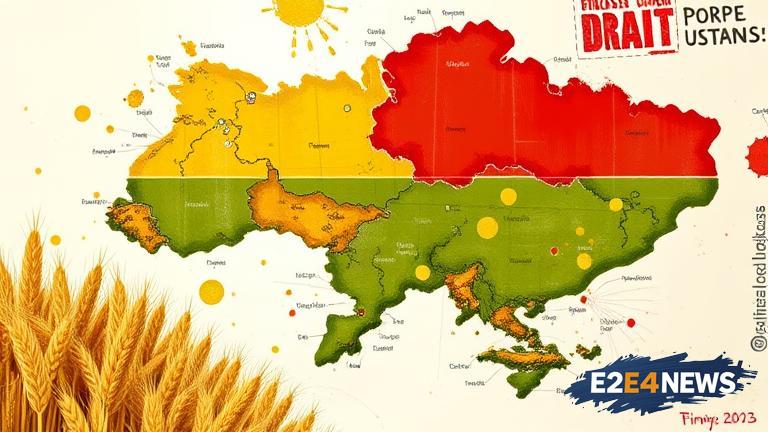The war in Ukraine has sent shockwaves through the global food system, with the country’s grain exports coming to a near standstill. Ukraine is one of the world’s largest exporters of wheat, corn, and barley, and the disruption to its supplies has led to a surge in prices. The conflict has also disrupted the supply of fertilizers and other agricultural inputs, further exacerbating the crisis. The United Nations has warned that the crisis could lead to widespread hunger and instability, particularly in developing countries that rely heavily on Ukrainian grain imports. The global food price index has already risen by over 20% since the start of the year, with wheat prices increasing by over 50%. The crisis is also having a major impact on the livestock industry, with many farmers struggling to afford feed for their animals. The European Union has announced plans to increase its own grain production to help mitigate the crisis, but it is unclear whether this will be enough to meet global demand. The US has also pledged to increase its grain exports, but this may not be enough to offset the losses from Ukraine. The crisis is also having a major impact on the global economy, with many countries relying heavily on grain imports to feed their populations. The World Bank has estimated that the crisis could lead to a 10% increase in poverty rates in some developing countries. The situation is particularly dire in countries such as Egypt, which relies heavily on Ukrainian wheat imports. The Egyptian government has announced plans to increase its own wheat production, but this will take time and may not be enough to meet the country’s needs. The crisis is also having a major impact on the global humanitarian system, with many aid agencies struggling to access grain supplies to feed refugees and other vulnerable populations. The UN has launched an emergency appeal to raise funds to support its food assistance programs, but more needs to be done to address the crisis. The international community must come together to find a solution to the crisis, including increasing grain production, providing financial support to affected countries, and working to resolve the conflict in Ukraine. The crisis is a stark reminder of the interconnectedness of the global food system and the need for international cooperation to address global challenges. The situation is being closely monitored by governments and aid agencies around the world, and it is likely that the crisis will continue to worsen unless a solution is found. The global food crisis is a major humanitarian and economic challenge that requires a coordinated and sustained response from the international community.





